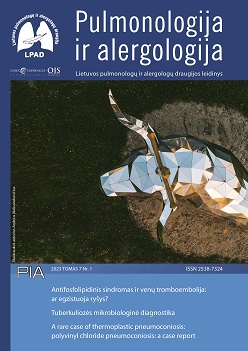ANTIPHOSPHOLIPID SYNDROME AND VENOUS THROMBOEMBOLISM. IS THERE A LINK?
Abstract
Antiphospholipid syndrome is an autoimmune disease characterized by the presence of antiphospholipid antibodies. Antiphospholipid syndrome can present with a variety of clinical phenotypes, including vascular thrombosis and/or pregnancy complications. The incidence of antiphospholipid syndrome is estimated at approximately 50 cases per 100 000 individuals. The precise pathogenic mechanisms are still being determined. Proposed mechanisms include that antiphospholipid antibodies promote activation of endothelial cells, monocytes, and platelets; and overproduction of tissue factor and thromboxane A2. As primary prophylaxis management includes low-dose aspirin. The current standard treatment for thrombosis is long-term warfarin or other vitamin K antagonist therapy. Treatment to prevent recurrent obstetric complications is low-dose aspirin and prophylactic low-molecular-weight heparin. Adjunctive options such as vitamin D and statins are also considered.


